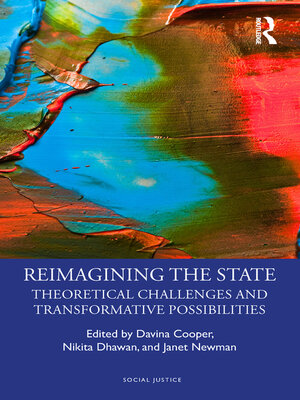Reimagining the State
ebook ∣ Theoretical Challenges and Transformative Possibilities · Social Justice
By Davina Cooper

Sign up to save your library
With an OverDrive account, you can save your favorite libraries for at-a-glance information about availability. Find out more about OverDrive accounts.
Find this title in Libby, the library reading app by OverDrive.



Search for a digital library with this title
Title found at these libraries:
| Library Name | Distance |
|---|---|
| Loading... |
This book examines what value, if any, the state has for the pursuit of progressive politics; and how it might need to be reimagined and remade to deliver transformative change.
Is it possible to reimagine the state in ways that open up projects of political transformation? This interdisciplinary collection provides alternative perspectives to the 'antistatism' of much critical writing and contemporary political movement activism. Contributors explore ways of reimagining the state that attend critically to the capitalist, neoliberal, gendered and racist conditions of contemporary polities, yet seek to hold onto the state in the process. Drawing on postcolonial, poststructuralist, feminist, queer, Marxist and anarchist thinking, they consider how states might be reread and reclaimed for radical politics. At the heart of this book is state plasticity – the capacity of the state conceptually and materially to take different forms. This plasticity is central to transformational thinking and practice, and to the conditions and labour that allow it to take place. But what can reimagining do; and what difficulties does it confront?
This book will appeal to academics and research students concerned with critical and transformative approaches to state theory, particularly in governance studies, politics and political theory, socio-legal studies, international relations, geography, gender/sexuality, cultural studies and anthropology.







